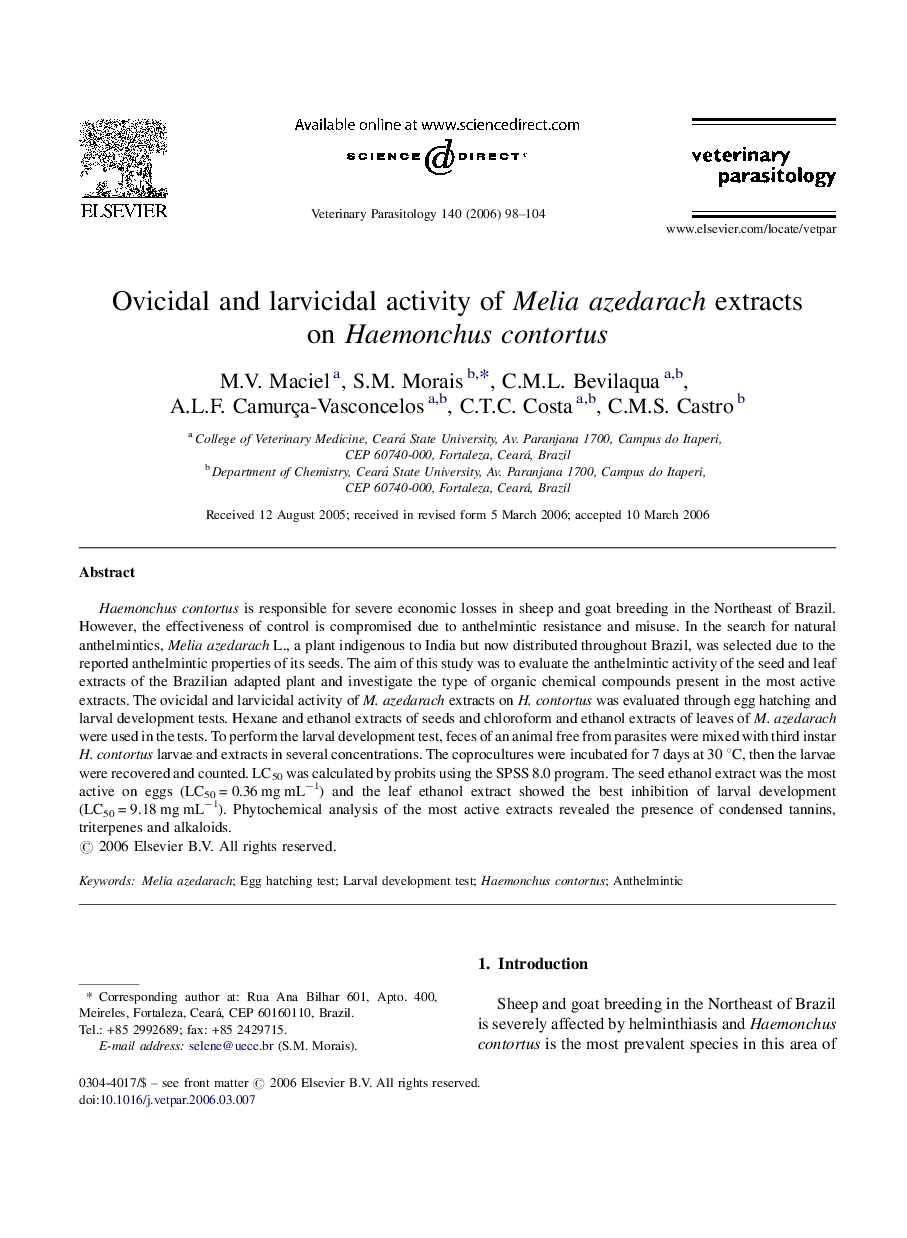| Article ID | Journal | Published Year | Pages | File Type |
|---|---|---|---|---|
| 2472450 | Veterinary Parasitology | 2006 | 7 Pages |
Haemonchus contortus is responsible for severe economic losses in sheep and goat breeding in the Northeast of Brazil. However, the effectiveness of control is compromised due to anthelmintic resistance and misuse. In the search for natural anthelmintics, Melia azedarach L., a plant indigenous to India but now distributed throughout Brazil, was selected due to the reported anthelmintic properties of its seeds. The aim of this study was to evaluate the anthelmintic activity of the seed and leaf extracts of the Brazilian adapted plant and investigate the type of organic chemical compounds present in the most active extracts. The ovicidal and larvicidal activity of M. azedarach extracts on H. contortus was evaluated through egg hatching and larval development tests. Hexane and ethanol extracts of seeds and chloroform and ethanol extracts of leaves of M. azedarach were used in the tests. To perform the larval development test, feces of an animal free from parasites were mixed with third instar H. contortus larvae and extracts in several concentrations. The coprocultures were incubated for 7 days at 30 °C, then the larvae were recovered and counted. LC50 was calculated by probits using the SPSS 8.0 program. The seed ethanol extract was the most active on eggs (LC50 = 0.36 mg mL−1) and the leaf ethanol extract showed the best inhibition of larval development (LC50 = 9.18 mg mL−1). Phytochemical analysis of the most active extracts revealed the presence of condensed tannins, triterpenes and alkaloids.
